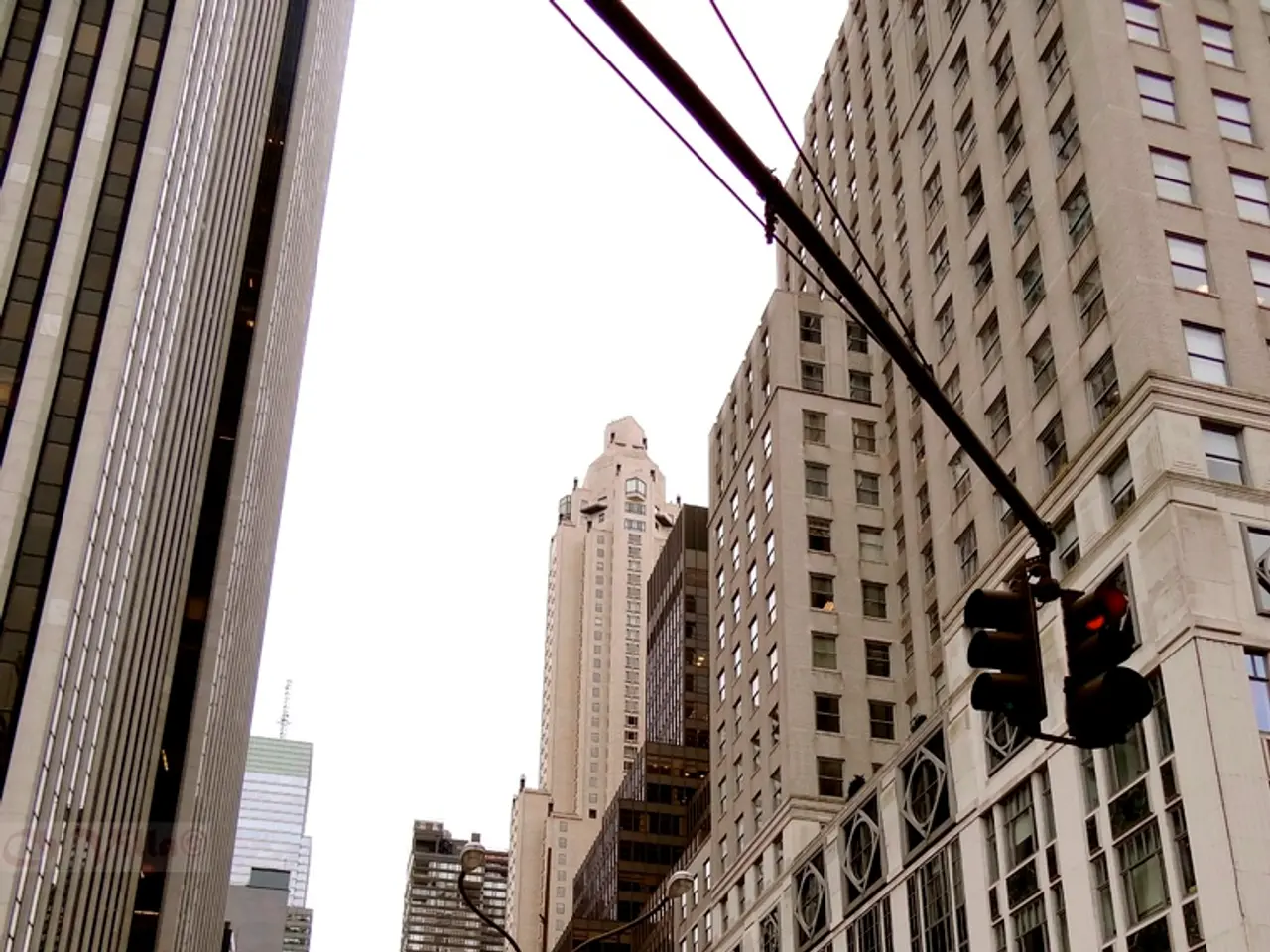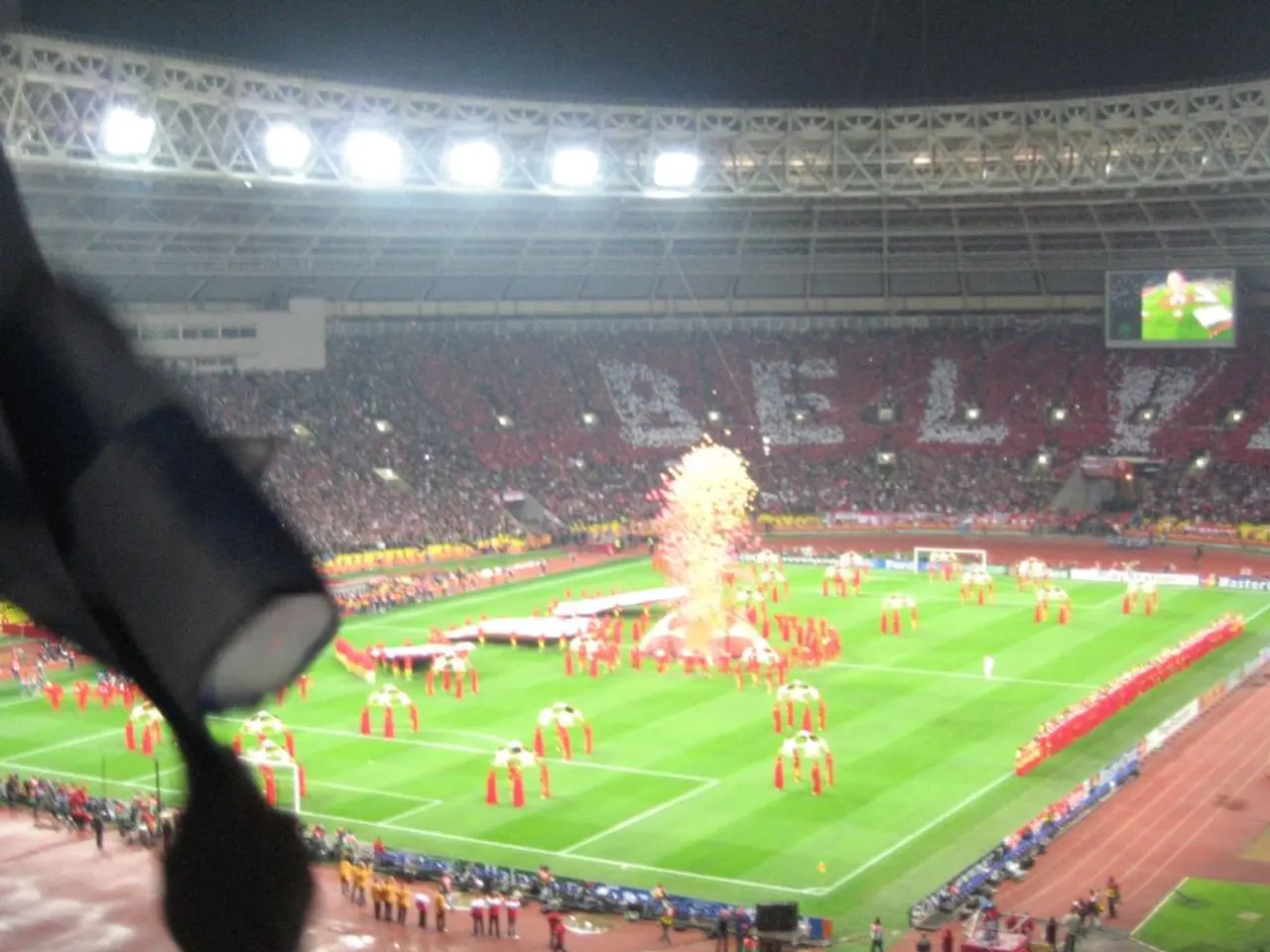Immigration sweeps by the Trump administration are temporarily halted due to a court ruling
The Ninth Circuit Court of Appeals has upheld a lower court's ruling, blocking the Trump administration's "roving patrols" or ICE raids that targeted individuals for detention based solely on race, ethnicity, language, or location, without reasonable suspicion of illegal status.
In a significant win for immigrant rights advocates, the court emphasised that such stops violate the Fourth Amendment protections against unreasonable searches and seizures, as they rely on discriminatory profiling rather than individualised suspicion.
The courts are considering whether immigration raids are conducted based on reasonable suspicion that the individuals are in the U.S. illegally, as required by the Fourth Amendment. The rulings found that the Trump administration's tactics did not meet this standard, instead targeting people for simply speaking Spanish, appearing to be of a certain ethnicity, or being near typical work locations like bus stops or agriculture sites.
The judges stated there is no predicate action by the individuals that justifies these stops, which effectively criminalise normal daily activities and impose harm based on stereotypes rather than facts.
Among the plaintiffs is Los Angeles resident Brian Gavidia, who was seized by federal agents despite being born in the United States. Sung, a Biden appointee, questioned the government's use of factors such as race, language, presence at a location, and occupation, stating that in an area like Los Angeles, where Latinos make up as much as half the population, those factors "cannot possibly weed out those who have undocumented status and those who have documented legal status."
The federal government asked the court to overturn a temporary restraining order issued on July 12 by Judge Maame E. Frimpong. However, the appeals court panel agreed with the lower court and questioned the government's need to oppose an order preventing them from violating the constitution.
Attorney Jacob Roth argued that the lower court's order was too broad and that immigrant advocates did not present enough evidence to prove an official government policy of stopping people without reasonable suspicion. Roth also argued that it is legally appropriate to use the factors for reasonable suspicion. However, the court found that the use of these factors in the way the Trump administration employed them violates the Fourth Amendment.
The American Civil Liberties Union attorney, Mohammad Tajsar, stated that the federal government's actions could result in U.S. citizens being grabbed, slammed against a fence, and having their personal belongings taken away. Los Angeles Mayor Karen Bass called the Friday night decision a "victory for the rule of law" and pledged to protect residents from "racial profiling and other illegal tactics" used by federal agents.
A hearing for a preliminary injunction, which would be a more substantial court order as the lawsuit proceeds, is scheduled for September. The current legal challenge against the Trump administration's immigration enforcement tactics in Southern California underscores judicial scrutiny of the administration’s enforcement methods as unconstitutional and harmful to migrant and working-class communities.
[1] Los Angeles Times
[2] CNN
[3] ACLU SoCal
- The ruling by the Ninth Circuit Court of Appeals has highlighted the controversy surrounding the Trump administration's immigration enforcement tactics, particularly the use of video evidence and the policy-and-legislation involvement in the protests against these tactics.
- In the general news, the ongoing legal battle against the Trump administration's immigration enforcement tactics, as seen in Southern California, has raised questions about politics and the alleged targeting of individuals based on ethnicity, language, or location, without reasonable suspicion of illegal status.








